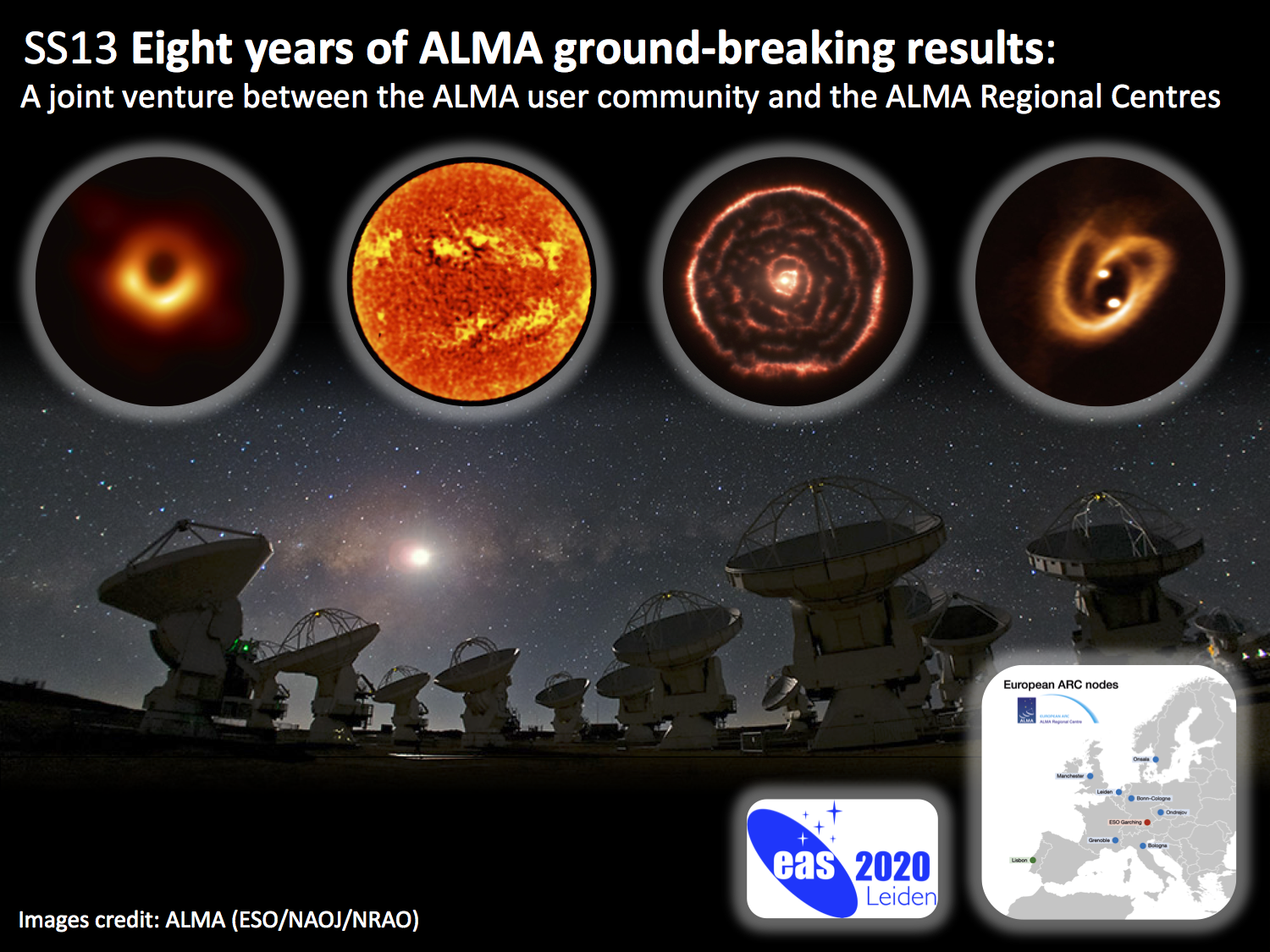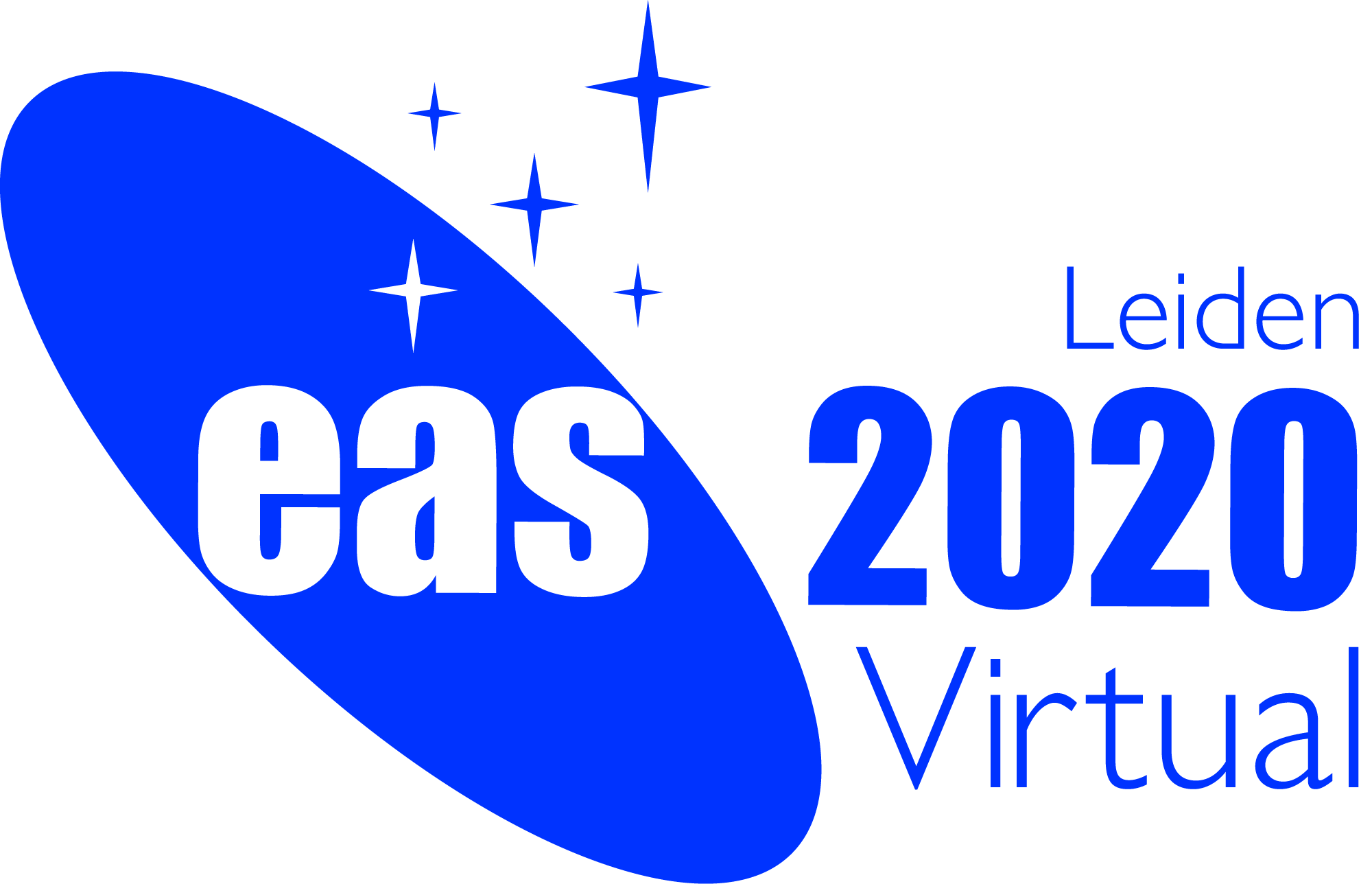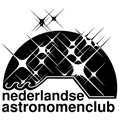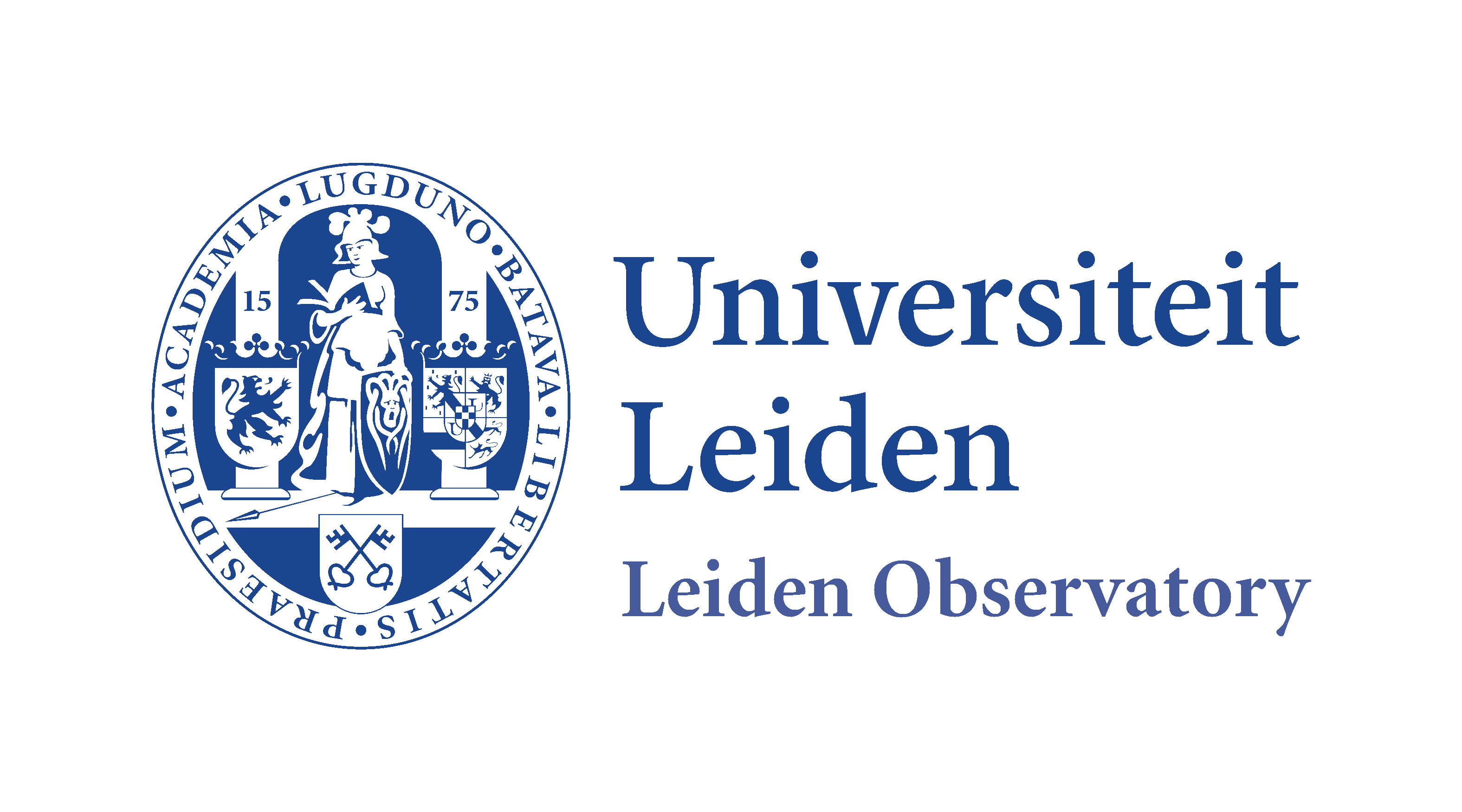Special Session SS13
3 July 2020
Eight years of ALMA ground-breaking results: A joint venture between the ALMA user community and the ALMA Regional Centres

News:
Dear ALMA/Radio/Interferometric data Enthusiast! On behalf of the Special Session 13 Organizing Committee: Thanks for submitting your abstract. As you might know the call for abstracts has a new deadline (May 3, 2020!). This is a great chance if you missed the first call and still want to join our virtual talks and discussions. This Special Session will provide a great (virtual) environment to improve your knowledge about: software, tools, queries, calibration and/or post processing strategies.
Aims and scope
The European ALMA Regional Centre (EU ARC) offers support to a large community of researchers hosted by European institutions. The support is offered to the ALMA user community through seven ARC Nodes and a Centre of Expertise spread across Europe, and the central ARC at ESO (together referred to as the EU ARC network). Experienced researchers, young graduates, as well as undergraduate students willing to use the ALMA telescope and/or the ALMA Science Archive, contact the EU ARC network in order to get help on matters such as writing observing proposals, reducing and calibrating ALMA data, as well as learning how to use tools and software for the analysis of their data sets.
The aim of this Special Session is to bring together the European ALMA users and the researchers providing support at the different EU ARC Nodes. This is a great opportunity for current and future users of ALMA to discuss new scientific results, observation and data reduction strategies, foster collaborations, and brainstorm on development and implementation of software from the user community. Additionally, it offers the opportunity to identify the need for new capabilities, some of which could be implemented in the near future, such as data combination from different array configurations, pipeline products delivery, and archive mining.
This Special Session complements science talks with the most relevant technical expertise hosted at the EU ARC that can help astronomers to get the best out of ALMA data, both proprietary and archival. In summary, the goals of this session are:
- To showcase the most scientifically relevant results from ALMA in the European community.
- To present the EU ARC network, particularly focusing on the expertise areas and the support that can be provided to the ALMA users.
- To showcase community-developed software tools pertinent to ALMA.
- To explore how to strengthen the connection between the ALMA users and the EU ARC network to further improve the scientific exploitation of ALMA.
Programme
This session is divided in three 90-min blocks. Each one starts with a dedicated talk to emphasize and promote the EU ARC network, in particular scientific highlights, user support and future activities. Poster submissions will be accepted, and contributions not selected for an oral presentation will be considered for a poster presentation instead.
The main topics included in the Special Session SS13 programme aim at highlighting scientific results that emphasise the connection between the ALMA users and the EU ARC network, and include:
- Scientific highlights from large programs.
- Scientific results from special modes with EU-specific strengths: high frequencies, polarization, solar observations, deep fields, data combination.
- Archival research and data mining.
- Community and EU ARC network software/tools development.
- Optimization of observations setup and data calibration.
- Computing facilities for data reduction and analysis.
Invited speakers
- Álvaro Hacar. Expert in data combination (EU-ARC. NL)
- Anita Richards. Interferometry and User support. (EU-ARC. UK)
- Frédérique Motte. Large program. ALMA-IMF: ALMA transforms our view of the origin of stellar masses (IPAG)
- Rosita Paladino. Polarimetry with ALMA (EU-ARC. IT)
- Sean Dougherty. ALMA Telescope Director. (JAO)
Scientific organisers
- Andrés Pérez-Sánchez. (chair, ESO-Fellow & Allegro, The Netherlands)
- Carmen Toribio-Pérez. (Onsala Space Observatory, Sweden)
- Gergö Popping. (ESO, Germany)
- Álvaro Sánchez-Monge. (University of Cologne, Germany)
- Evanthia Hatziminaoglou (ESO, Germany)
- Lizette Guzmán-Ramírez. (Allegro, Leiden University, The Netherlands)
- Ana López Sepulcre. (IRAM, France)
- Martin Zwaan. (ESO, Germany)
Contact
perezsanchez @ strw.leidenuniv.nl
Updated on Tue Apr 28 07:14:23 CEST 2020
|

 A power cut will shut down all EAS services on Tuesday, 10 January 2017 starting at 7:30 CET.
A power cut will shut down all EAS services on Tuesday, 10 January 2017 starting at 7:30 CET.



